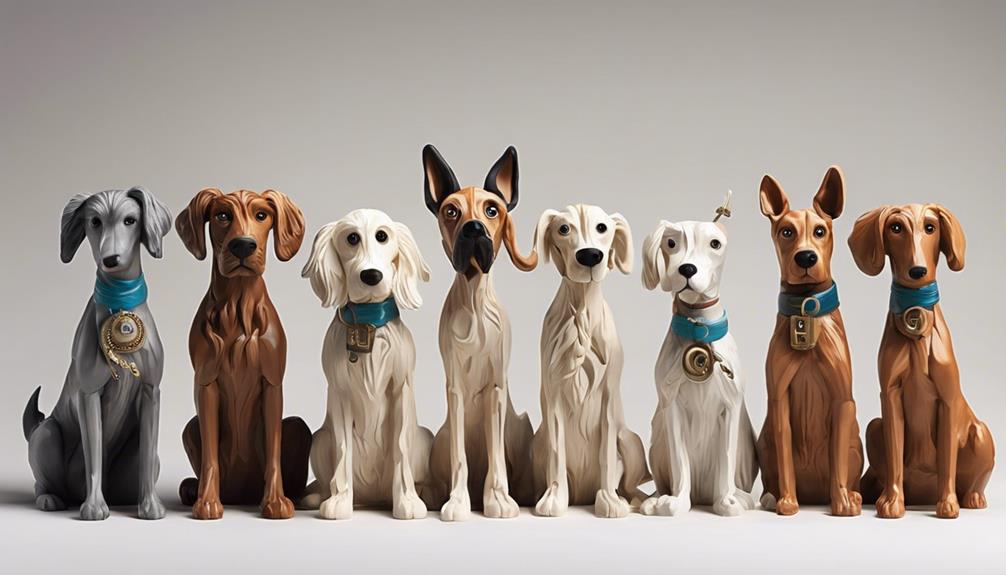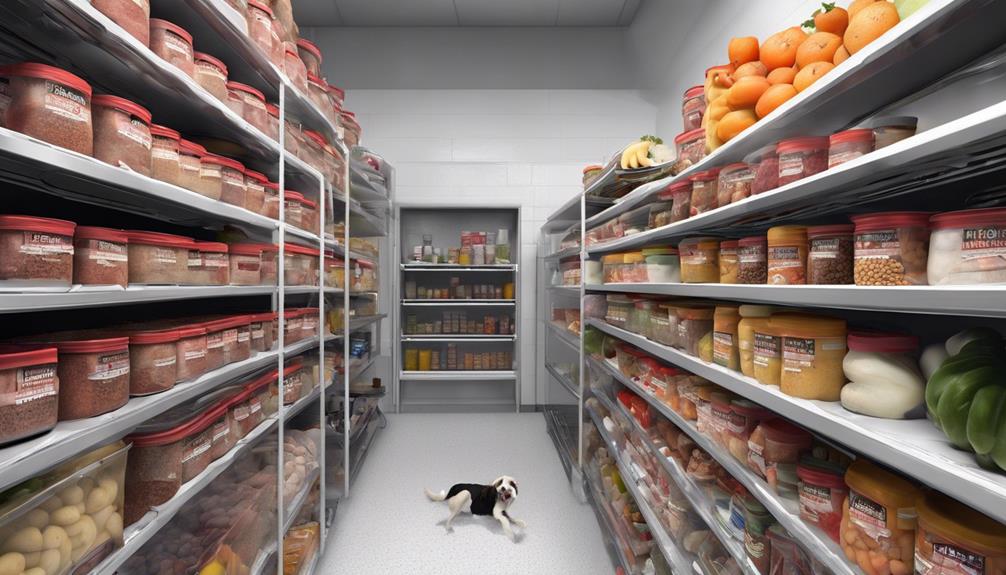To raise a friendly, confident dog, start socializing your puppy early. Expose them to safe playdates, different people, and varied environments while keeping sessions brief and positive. Watch for signs of stress and step in gently if needed. Reward calm behavior with treats and praise to build confidence. Focus on making new experiences fun and routine. Staying consistent and patient helps your puppy develop into a well-rounded companion—continue to learn how to support their social growth.
Key Takeaways
- Start socializing puppies early with safe, positive interactions with people, dogs, and various environments.
- Keep playdates short, supervised, and gradually increase duration to build confidence and prevent stress.
- Use treats and praise to reinforce calm, friendly behavior during social interactions.
- Expose puppies to diverse stimuli, sounds, surfaces, and people in a calm, encouraging manner.
- Avoid forcing interactions; instead, allow puppies to explore and adjust at their own pace for positive experiences.

Have you ever wondered why socializing your puppy early on is so essential? The answer lies in building a confident, friendly adult dog who’s comfortable around people and other animals. One of the best ways to achieve this is through puppy playdates. These are scheduled meetings with other puppies or well-behaved adult dogs, providing a safe environment for your pup to learn how to interact appropriately. Puppy playdates aren’t just about fun; they’re vital for teaching your dog essential social skills, like bite inhibition, patience, and how to communicate with others. When managed correctly, these playdates help prevent future behavioral issues, such as fearfulness or aggression.
To make the most of puppy playdates, you need to implement effective socialization techniques. Start by choosing calm, vaccinated puppies or dogs that have a gentle temperament. Keep the initial meetings short—around 15 to 20 minutes—and observe your puppy’s behavior closely. If your pup seems overwhelmed or frightened, give them time to settle down, and don’t force interaction. Gradually increase the duration as your puppy becomes more comfortable. Always supervise these sessions to intervene if play gets too rough or if your puppy shows signs of stress, like growling or cowering. Positive reinforcement is key; praise and reward your puppy for calm, friendly behavior during and after play. This encourages them to associate social encounters with positive experiences.
In addition to puppy playdates, socialization techniques include exposing your pup to a variety of environments, sounds, and people. Take your puppy on walks in busy areas, introduce them to different types of people, and let them experience different surfaces like grass, concrete, or gravel. The goal is to make new experiences feel safe and routine rather than intimidating. When introducing your puppy to new stimuli, stay calm and encouraging, never forcing them into situations they’re uncomfortable with. Use treats and praise to reinforce brave behavior, helping your puppy develop confidence. Additionally, understanding the importance of proper socialization can help you create a well-rounded, confident dog that’s comfortable in diverse settings.
Frequently Asked Questions
When Is the Ideal Age to Start Socialization?
You should start socialization when your puppy is around 3 to 4 weeks old, but avoid exposing them to unvaccinated animals. The ideal age is between 8 and 16 weeks, when their socialization milestones are most receptive. During this time, make certain they’re up-to-date on puppy vaccinations, allowing safe interactions. Early socialization helps your pup build confidence and reduces fearfulness, setting a foundation for a well-adjusted, friendly dog.
How Do I Socialize an Anxious or Timid Puppy?
You can help your anxious or timid puppy build confidence by using gentle socialization techniques. Start slowly, exposing your puppy to new people, sounds, and environments at their pace. Use positive reinforcement to reward brave behaviors, like approaching new situations calmly. Consistency is key—regular, positive experiences help your puppy develop social skills and boost confidence, making them more comfortable and confident as they grow.
Can Socialization Cause Health Risks for Puppies?
Think of socialization as your puppy’s “viral” moment—exposing them to new experiences can carry health risks. But don’t worry; if you follow proper health precautions, like ensuring they’re up-to-date on puppy vaccinations, you minimize danger. Socialization doesn’t have to be risky; it helps your pup grow confident. Just keep a close eye on their health, avoid crowded places during initial visits, and always consult your vet for guidance.
How Often Should Socialization Sessions Occur?
You should aim for regular socialization sessions, ideally 2-3 times a week, to meet socialization milestones and build your puppy’s confidence. Incorporate puppy playdates with vaccinated pups and expose them to new people and environments gradually. Consistency is key; frequent, positive encounters help your puppy develop friendly behaviors while minimizing health risks. Keep sessions short and enjoyable, and always monitor for signs of stress or fatigue.
What Are Signs of Successful Puppy Socialization?
When evaluating successful puppy socialization, look for signs like playful interactions and calm behavior during environmental exposure. Your puppy should approach new people, animals, and sights with curiosity rather than fear. They should remain relaxed and engaged, not overwhelmed or anxious. If your puppy happily explores, initiates play, and adapts well to new environments, it’s a good indication their socialization efforts are working effectively.
Conclusion
By socializing your puppy early, you build confidence, foster friendliness, and prevent future fears. You create trust, encourage curiosity, and develop good manners. You expose your pup to new sights, sounds, and smells, shaping a well-rounded companion. You invest in patience, consistency, and love, knowing each moment strengthens your bond. With dedication, your puppy will grow into a confident, friendly dog—happy to explore, enthusiastic to learn, and ready to face the world with joy.









